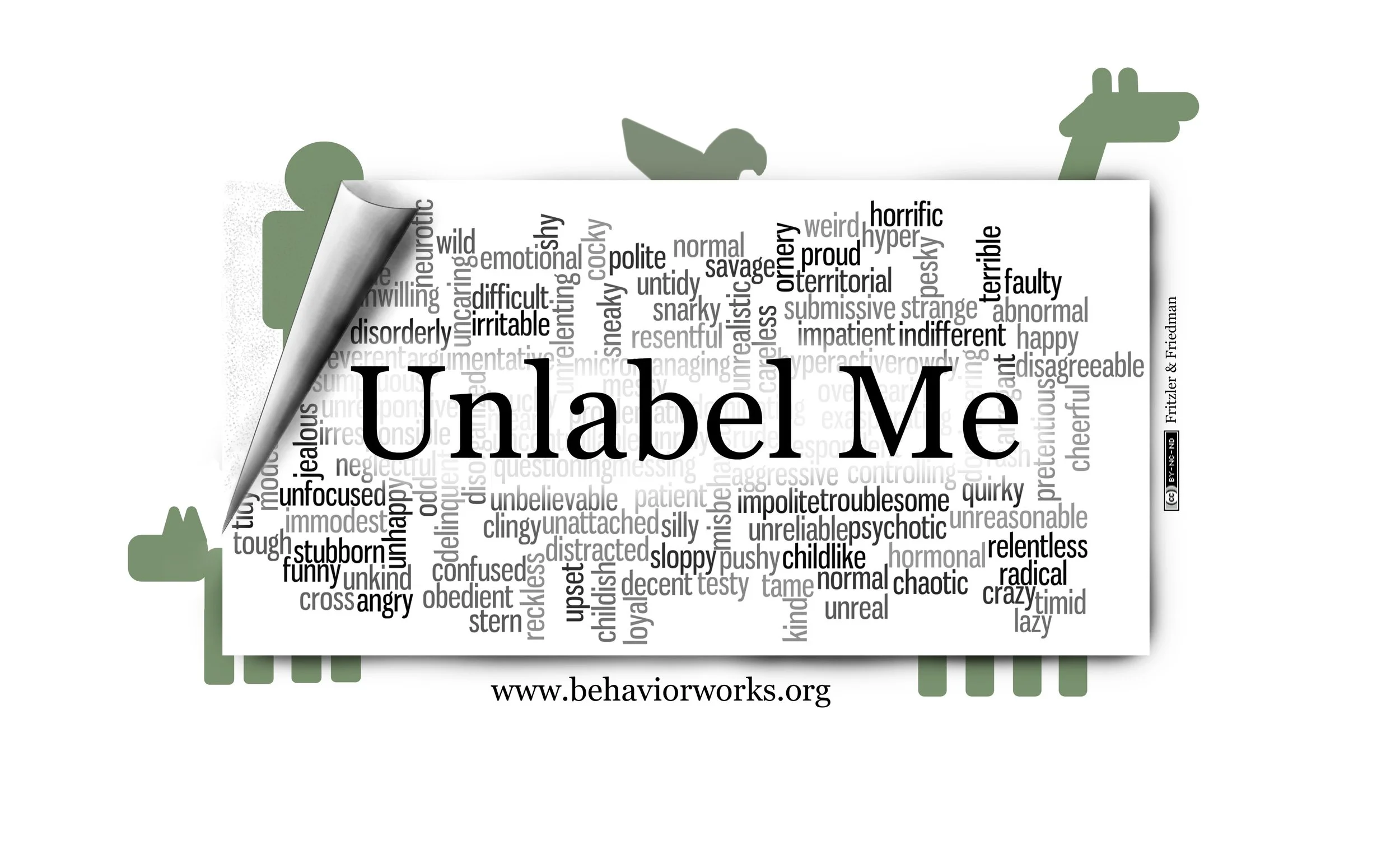It’s tempting to describe our dogs with quick labels. You might hear words like stubborn, lazy, anxious, or awkward . These words feel simple and as humans they are easy to use, but as behaviourist Dr. Susan Friedman highlights in her powerful Unlabel Me, labels don’t explain behaviour, or even explain what we see— they try to describe it, but are often inaccurate. Many times, these labels stop us looking any further.
Why labels are unhelpful
When we call a dog stubborn, it doesn’t tell us why they aren’t coming when called, or freezing when out on a walk.
When we say they’re lazy, it doesn’t explain why they may not want to move.
When we describe them as anxious, it doesn’t tell us what’s triggering that fear or how we can help them feel safe.
Labels can easily become a barrier to understanding. Instead of opening the door to curiosity and true observations, they close it.
What we can do instead
A more helpful approach is to observe and describe:
What is my dog doing?
When and where does it happen?
What purpose might it serve for them?
By shifting our perspective, becoming an observer and more empathetic, behaviour becomes information rather than a “problem.” It gives us clues about how our dog feels, what they need, and how we can support them.
Don’t forget pain
One of the most overlooked reasons for changes in behaviour is pain.
A dog labelled as grumpy may actually be struggling with arthritis.
A dog called lazy may be avoiding movement because it hurts.
A dog described as reactive may be protecting themselves from being touched in a painful area.
If we rely on labels, we risk missing the vital step of recognising pain. Once it is recognised then we can address it with appropriate care, whether that’s veterinary treatment, physiotherapy, or gentle support at home.
How TTouch helps
This is where Tellington TTouch becomes such a powerful tool. TTouch encourages us to slow down, observe closely, and notice the small signals our dogs give us. It’s about working with the dog, not against them. We are listening to their whispers so they don’t need to shout.
Through gentle techniques, we can reduce tension, build trust, and help dogs find new, positive patterns of behaviour. Combined with veterinary physiotherapy, it also gives us another lens through which to notice signs of discomfort or pain that might otherwise go unseen.
A more compassionate way forward
Dr. Friedman reminds us that we are all more than a single word. Our dogs deserve that same respect. By unlabelling them, we give ourselves the chance to see the whole picture for that special and unique individual their physical, emotional, and behavioural being.
So next time you find yourself reaching for a label, pause.
Observe. Describe. Ask questions.
And remember that every behaviour tells a story worth listening to.
💜 Your dog is more than a label.

